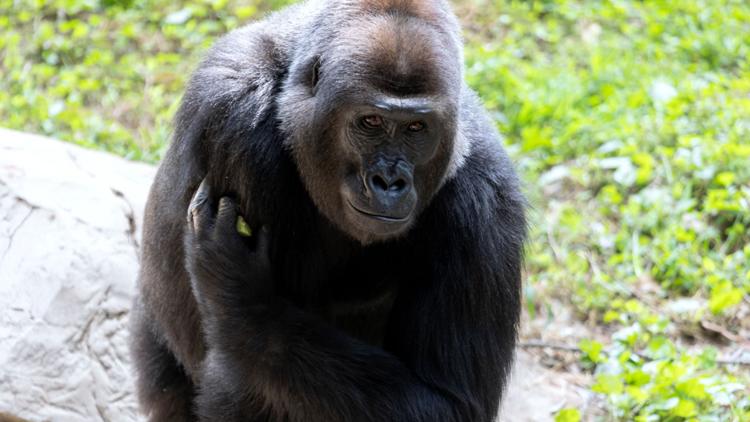ATLANTA — Zoo Atlanta has a new baby on the way! Kambera, a 25-year-old western lowland gorilla, is pregnant!
The Veterinary and Animal Care Teams first detected the pregnancy in April. Gorilla gestation is around eight and a half months,so Kambera is expected to give birth between mid-November and mid-December 2024. The teams will continue to perform prenatal ultrasounds as the pregnancy progresses; Kambera participates in these voluntarily, according to a Zoo Atlanta press release.
Kambera previously gave birth at another organization but did not demonstrate maternal inclinations and did not raise the infant, according to the release. However, during her time at Zoo Atlanta, Kambera has observed the behaviors of another gorilla in the social group: 22-year-old Shalia with her baby Willie B. III. The zoo hopes these observations will encourage her own maternal behaviors once her baby arrives.
“We are thrilled to announce Kambera’s pregnancy,” Gina Ferrie, Vice President of Collections and Conservation, said in the release. “Not only will this infant make an individual contribution to the long-term viability of a critically endangered species, but having two youngsters so close in age in the same troop will be a special joy.”
The infant will also be father Willie B. Jr's second offspring.
Kambera, Shalia and 13-year-old Amari arrived at Zoo Atlanta in 2020 to form a new troop with Willie B. Jr. as part of an effort to "maintain a self-sustaining, genetically diverse gorilla population for future generations," the release said.
Kambera's infant will be the 26th gorilla born at Zoo Atlanta. The zoo is home to one of the largest gorilla populations in North America, with individuals ranging in age from 15 months to 48 years. Zoo Atlanta scientists have published more than 100 papers on gorilla maternal care, reproduction, social behavior and cognition.
Western lowland gorilla populations have plummeted in the wild in recent years as a result of habitat loss, poaching, illegal hunting for the bushmeat trade and emerging diseases, according to the release. According to the International Union for Conservation of Nature (IUCN), in the last 25 years, these combined threats have reduced wild populations by 60%, with declines of as much as 90% in some parts of their range in western Africa.
RELATED: Baby monkey born at Zoo Atlanta



